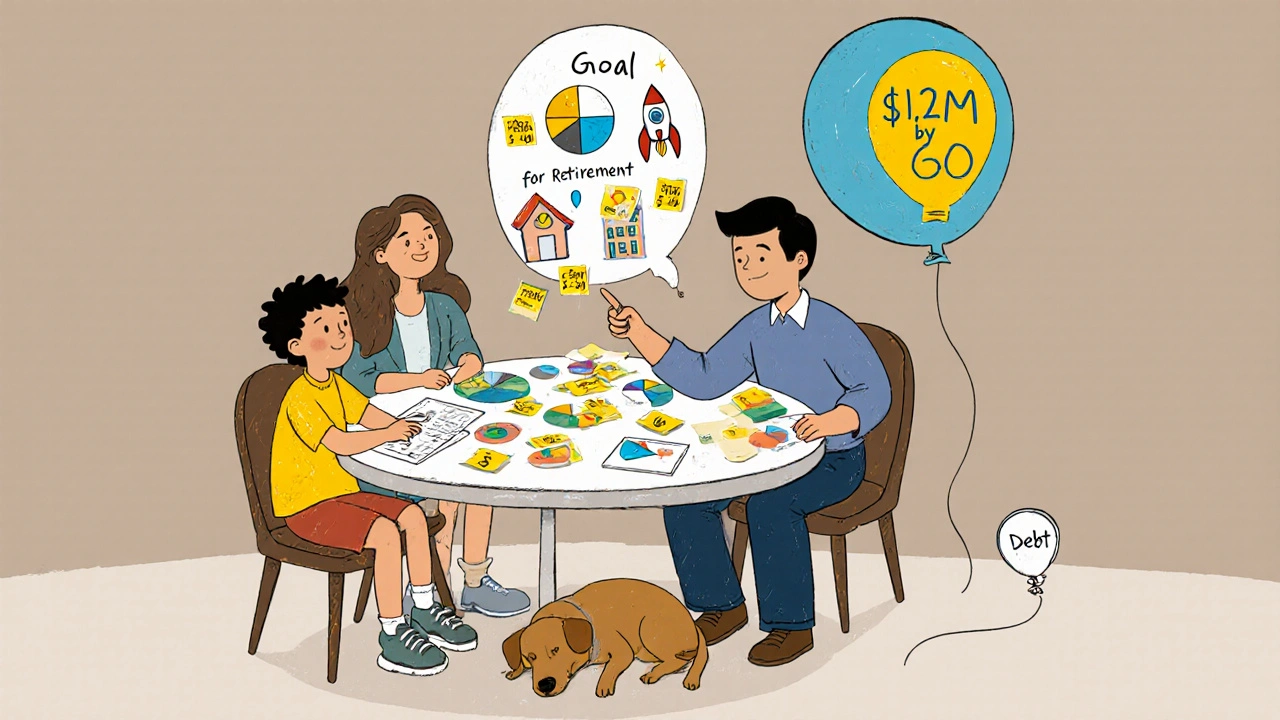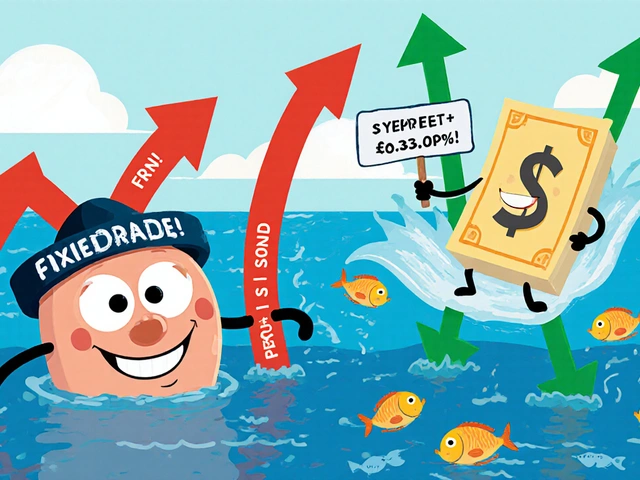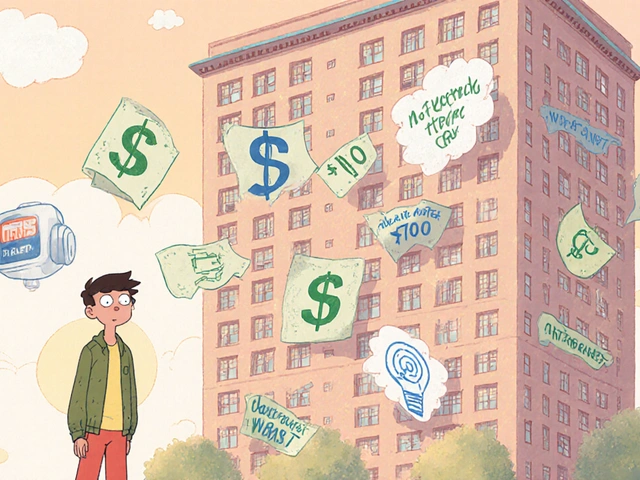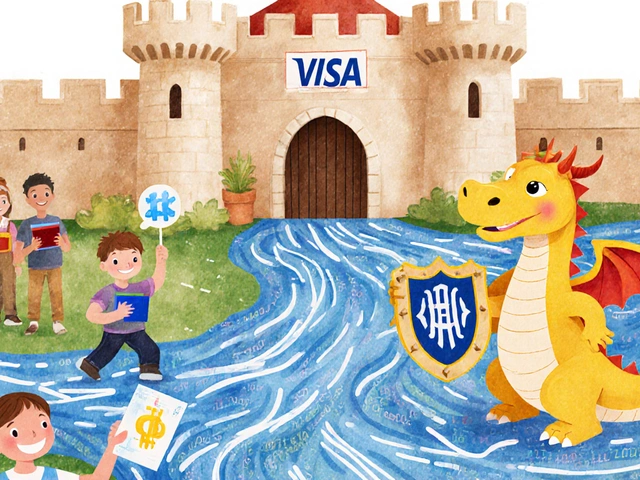Why Your First Meeting With a Financial Advisor Matters
You wouldn’t walk into a doctor’s office without your medical history. So why show up to your first financial advisor meeting with nothing but a vague idea of your goals? The first meeting sets the tone for everything that follows. It’s not just about handing over papers-it’s about building trust, uncovering blind spots, and starting a real partnership. Advisors who see complete, accurate information can spot opportunities you didn’t even know existed-like hidden fees on your 401(k), gaps in your insurance, or tax strategies you’re missing. Clients who come prepared get 37% more actionable advice during that first session, according to Savant Wealth. That’s not luck. That’s preparation.
Income Documents: Prove Where Your Money Comes From
Financial advisors need to know your real income, not what you think it is. That means bringing tax returns, pay stubs, and any forms that show regular earnings. Bring your last two to three years of federal and state tax returns. This isn’t just paperwork-it shows patterns. Did your income jump last year? Did you take a pay cut? Did you start freelancing? These details change how your plan is built.
If you’re employed, bring your most recent pay stubs and your last two W-2 forms. If you’re self-employed or a contractor, bring your 1099 forms from the past year. Don’t forget side gigs. That freelance design work or Uber rides? They count. Advisors see the full picture when you’re honest about all income sources. Morgan Stanley’s advisor survey found 89% of professionals consider these documents essential. Skipping them means your plan could be built on guesswork.
Asset Documents: Show What You Own
Assets are everything you own that has value. That includes cash, investments, and retirement accounts. Start with your bank statements-checking, savings, money market. Bring statements from the last 30 to 60 days. Don’t leave out old or inactive accounts. A 2022 industry analysis found 63% of clients forget to mention dormant accounts. Those forgotten $5,000 savings accounts? They could be part of your emergency fund strategy.
Next, bring statements for all retirement accounts: 401(k)s, IRAs, Roth IRAs, SEP IRAs. Make sure they’re recent-ideally from the last 30 days. Advisors will check contribution amounts, automatic transfers, and whether you’re missing out on employer matches. Kitces.com reports 78% of advisors review these details in the first meeting. If you’re contributing $500 a month but your employer matches 100% up to $300, you’re leaving free money on the table. That’s the kind of thing a good advisor catches.
Investment accounts matter too. Bring statements for brokerage accounts, mutual funds, ETFs, and any other holdings. Include the last 12 to 24 months. Advisors look at performance trends, asset allocation, and fees. Morgan Stanley says 67% of advisors request two years of history to spot underperforming funds or overconcentrated positions. If half your portfolio is in one stock, they’ll tell you.
Liability Documents: List What You Owe
Debt isn’t just credit cards. It’s everything you owe. Bring statements for your mortgage, car loans, student loans, personal loans, and credit card balances. Include the current balance, interest rate, and minimum payment. Don’t downplay debt because you think it’s "not that much." Advisors use debt-to-income ratios to determine how much risk you can handle. Kitces.com found 82% of advisors check this number during initial meetings.
If you have a mortgage, bring the most recent statement and your loan agreement. If you’re paying off student loans, bring the servicer’s statement. Even small debts like medical bills or unpaid balances on retail cards matter. Omitting them makes your financial picture incomplete-and your plan less effective.

Insurance Policies: Protect What You Have
Insurance isn’t optional-it’s part of your financial safety net. Bring copies of all your policies: life, disability, health, auto, and homeowner’s or renter’s. If you get coverage through work, bring your employer benefits statement. That’s often the most overlooked document. Northwestern Mutual found 68% of clients don’t realize their employer provides life or disability insurance. That means they might be buying duplicate coverage-or worse, leaving themselves unprotected.
Advisors use insurance info to spot gaps. If you’re the primary earner and have no life insurance, your family could be at risk. If your disability policy only covers 50% of your income, you might not survive a long-term injury. Kitces.com says 71% of clients underestimate their coverage gaps. Don’t be one of them. Bring the paperwork so your advisor can tell you if you’re over-insured, under-insured, or just right.
Financial Goals and Budget: Tell Them Where You Want to Go
Documents show what you’ve done. Goals show what you want to do. Write down your top three financial goals. Be specific. "Save for retirement" isn’t enough. "Retire at 60 with $1.2 million in investments" is. "Pay off $20,000 in student loans in five years" is better than "get out of debt." Bring a simple monthly budget. You don’t need fancy software. A spreadsheet or even a handwritten list of income and expenses works. Include rent, groceries, utilities, subscriptions, entertainment, and irregular costs like car repairs or holiday gifts. Advisors use this to see where your money really goes-and where you might be able to save more.
If you already have a financial plan-even an old one-bring it. Maybe it’s from a previous advisor, a DIY tool, or a spreadsheet you made. It doesn’t have to be perfect. It just shows you’ve thought about this. Savant Wealth says clients who bring 3-5 clear questions get 28% more personalized advice.
Real Estate and Other Big Assets
If you own property-whether it’s a primary home, vacation cabin, or rental unit-bring the deed, mortgage statement, and recent appraisal or tax assessment. Advisors need to know the current value and any outstanding loans. Real estate is often the biggest asset people have, and it affects everything from your net worth to your tax strategy.
Don’t forget other big assets: valuable collections, business ownership stakes, or even cryptocurrency holdings. If you own a business, bring your profit and loss statement and balance sheet. If you have crypto, bring a screenshot of your wallet balance and transaction history. Advisors don’t need to understand every asset-but they do need to know it exists.
Who Should Come With You
If you’re married or in a long-term partnership, bring your significant other. Northwestern Mutual found couples who attend the first meeting together have a 43% higher chance of sticking with the advisor long-term. Financial decisions affect both of you. If one person is in charge of bills and the other handles investments, you’re both missing pieces. Bring your partner so you’re on the same page from day one.
If you’re single but have a trusted family member who helps with money-like an adult child or parent-consider bringing them too. Just make sure you’re comfortable with them hearing your financial details. Privacy matters.
What to Bring to Take Notes
Bring a notebook and pen-or a tablet with a note-taking app. You’ll hear a lot of new terms: asset allocation, tax-loss harvesting, required minimum distributions. You’ll get advice you don’t fully understand yet. Writing things down helps you remember what was said and what you need to follow up on.
Also bring a list of questions. Here are a few to start with:
- What’s your experience with clients like me?
- Do you have a specialty-retirement, taxes, estate planning?
- How often will we meet? How do you prefer to communicate?
- How are you paid? Are you a fiduciary?
- What’s your process for updating a plan when life changes?
Morgan Stanley says 85% of advisors appreciate clients who take notes. It shows you’re serious.
What If You Can’t Get Everything Together?
You don’t need to have every document perfect before your first meeting. Northwestern Mutual’s research found it takes the average person 8 to 12 hours to gather everything. If you’re overwhelmed, don’t wait. Show up with what you have. Advisors expect it. They’ll tell you what’s missing and help you get it.
But don’t use "I don’t have time" as an excuse to delay. If you’ve decided to work with an advisor, schedule the meeting within 30 days. Waiting longer means you’re delaying progress on your goals.
What Happens After the Meeting?
The first meeting isn’t the end-it’s the start. Your advisor will review what you brought, run numbers, and may ask for more info. They’ll likely schedule a second meeting to walk you through their recommendations. Savant Wealth says the average client needs 2.7 meetings to complete their initial plan.
After the meeting, ask yourself: Did you feel heard? Did they listen more than they talked? Did they explain things clearly? Do you feel comfortable asking them a follow-up question next week? If the answer is no to any of those, it might not be the right fit. Compatibility matters more than credentials. Kitces.com says 67% of advisors say client comfort is the #1 factor in deciding whether to take someone on as a client.
Final Tip: Don’t Overthink It
Preparing for your first financial advisor meeting feels intimidating. But you’re not expected to be an expert. You’re expected to be honest, organized, and willing to learn. Bring what you can. Ask questions. Listen. And remember-you’re not hiring someone to fix your money. You’re hiring someone to help you build a better life with it.




Finally, someone laid this out like a goddamn manual. I showed up to my first advisor meeting with a napkin that had ‘save money’ scribbled on it. Got laughed out of the room-literally. This checklist? Pure gold. I went back with tax returns, bank statements, even my stupid Amazon Prime credit card balance. Advisor didn’t blink. We found $11k in forgotten 401(k) matches and slashed my insurance premiums by 40%. Do the work. It’s not hard. Just stop being lazy.
Also, bring your partner. My wife didn’t even know I had a Roth IRA. Now she’s the one nagging me to update our budget. Best decision ever.
There is, in the act of preparing for such a meeting, a quiet form of self-accountability that transcends mere financial planning-it becomes an act of confronting one’s own relationship with money, with time, with security. Many of us avoid this because it demands vulnerability, and vulnerability, in a culture that equates wealth with strength, feels like weakness. Yet, the documents we gather-bank statements, insurance policies, even the scribbled budget-are not just data points; they are artifacts of our lived reality. To bring them forth is to say: I am ready to be seen, not as a number, but as a human being with fears, hopes, and the quiet dignity of trying to do better.
I once met an advisor who asked me, ‘What do you want your money to protect?’ Not ‘How much do you have?’ Not ‘What’s your risk tolerance?’ That question changed everything. I cried. I didn’t expect to. But now, I bring that question with me to every meeting. It’s not about portfolios. It’s about peace.
Bro, the real MVP here is the ‘bring your partner’ tip. I’m a single guy with crypto and side gigs, but I brought my cousin who handles my taxes. We walked in with 17 documents, 3 screenshots of my Binance account, and a spreadsheet labeled ‘DontTellMomAboutThis.’ Advisor didn’t flinch. Said, ‘You’re doing better than 90% of clients.’ Then he asked if I had disability insurance. I said ‘nah, I’m young.’ He looked at me like I just said I don’t believe in gravity. Turned out my job’s plan covers 60% of my income-$80k/year. I’ve been paying $40/month for a $10k policy I didn’t need. Saved $500/year. That’s a free vacation.
Also, stop using Mint. Use Google Sheets. It’s 2025. You’re not a child.
Look. I’ve read this whole thing. And honestly? It’s cute. Like a kindergarten teacher’s ‘My First Budget’ poster. You think bringing a pay stub and a handwritten list of your Netflix subscriptions is going to impress a real advisor? Please. The top 1% don’t even *have* pay stubs-they have trust structures, offshore LLCs, and tax attorneys who whisper in their ears while they sip single-origin Ethiopian at 7 a.m.
And don’t get me started on ‘bring your partner.’ If you need someone else to remind you to bring your 401(k) statement, you shouldn’t be talking to an advisor-you should be talking to a therapist who specializes in financial codependency.
Real prep? You don’t bring documents. You bring *insight*. You bring your understanding of asset correlation, your awareness of municipal bond ladders, your ability to explain why REITs outperform equities in stagflation. If you’re still asking ‘what’s a fiduciary?’ you’re not ready. You’re just another guy with a 401(k) and a dream. Go back to Reddit. We’re waiting.